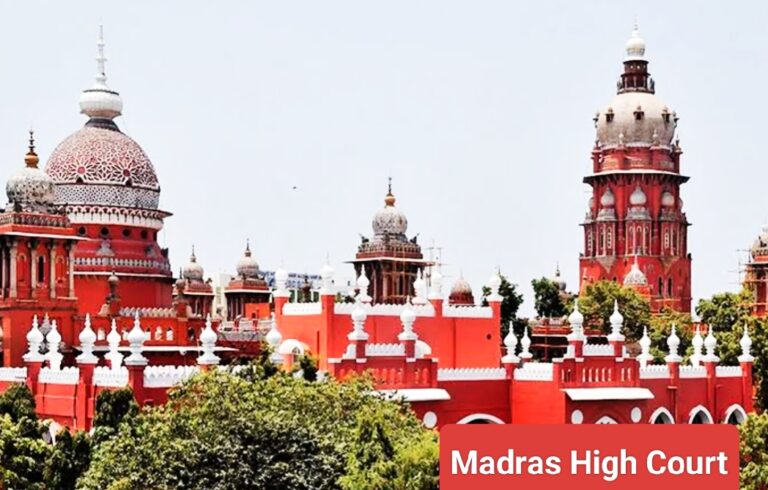When the appeal is filed by the assessee as against the original order of assessment, the limitation period shall be calculated from the date on which the rectification had been dismissed.
The Madras High Court in case of “M/s.SPK and Co vs. The State Tax Officer” has clarified that the limitation period for contesting GST assessment orders under Section 107 of the GST Act starts from the date the rectification application filed under Section 161 is rejected. Justice K. Kumaresh Babu, presiding over the case, emphasized that “the period of limitation for challenging the order of assessment shall start ticking from the date of rejection of the rectification application.”
Background of the Case
In this case, the taxpayer responded in detail to a GST Show Cause Notice (SCN). Following the response, the GST department issued the impugned assessment order. The taxpayer subsequently filed a rectification application, arguing that the assessment order contained errors that required correction. However, the department dismissed the rectification application, stating that the issues raised in the rectification petition were effectively challenges to the original assessment order.
The taxpayer then moved the matter to the Madras High Court, contending that the limitation period to contest the original assessment order could not commence from the date of the order itself. Instead, they argued, the limitation period should begin from the date the rectification application was rejected.
Also Read: Orissa High Court Stays GST Notice U.S.74 Consolidating Multiple Assessment Years: Key Details
High Court’s Decision
The High Court provided a decisive interpretation on the matter. It noted that the assessment order was dated August 7, 2024, and the rectification order rejecting the application was issued on November 12, 2024. Consequently, the court ruled that the limitation period for filing an appeal against the assessment order would begin from November 12, 2024, the date when the rectification application was dismissed.
Justice Babu stated, “When the appeal is filed by the assessee as against the original order of assessment, the period of limitation shall be calculated from the date on which the rectification had been dismissed.”
Key Observations by the Bench
- The court pointed out that the taxpayer’s claim regarding the ambiguity of the SCN and other related issues could not be raised in the writ petition as they had already been addressed in the earlier stages.
- It was noted that any additional grounds contesting the merits of the assessment order must be pursued through the appropriate statutory channels.
- The court directed the taxpayer to approach the relevant authority to address their concerns.
Also Read: Guide to e-Invoicing Under GST: A Complete Overview
Implications of the Ruling
This judgment underscores the importance of understanding the timeline for filing appeals under the GST Act. Taxpayers seeking to challenge assessment orders must account for the rejection date of any rectification application they file under Section 161. The ruling ensures clarity in calculating limitation periods, thereby reducing ambiguity for both taxpayers and the authorities.
Conclusion
The Madras High Court’s decision establishes a clear precedent that the limitation period for contesting a GST assessment order begins from the date the rectification application is rejected, not the date of the original assessment order. Taxpayers must be vigilant in adhering to these timelines to preserve their right to appeal. This clarification serves as a critical guide for taxpayers navigating disputes under the GST framework.
Also Read: Kerala High Court Rules Financial Grants for Daily Operations Exempt from GST
READ MORE
No TDS on Cash Withdrawals by Foreign Representations Effective December 1
PAN 2.0 Project Approved by CCEA: A Milestone in Taxpayer Services Modernisation
